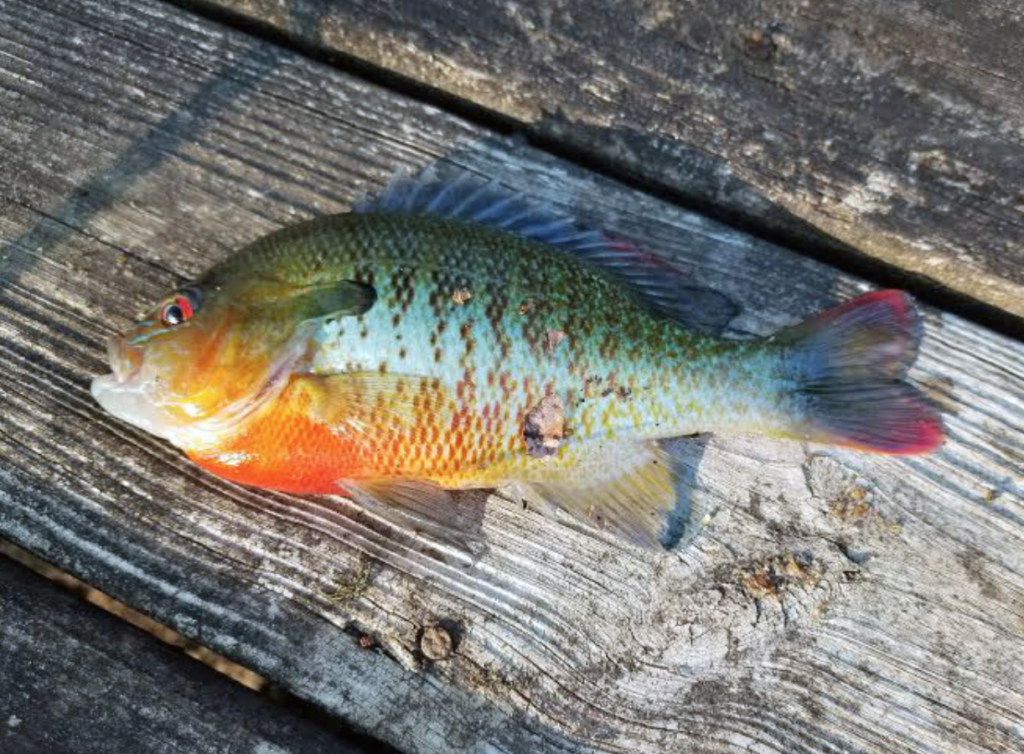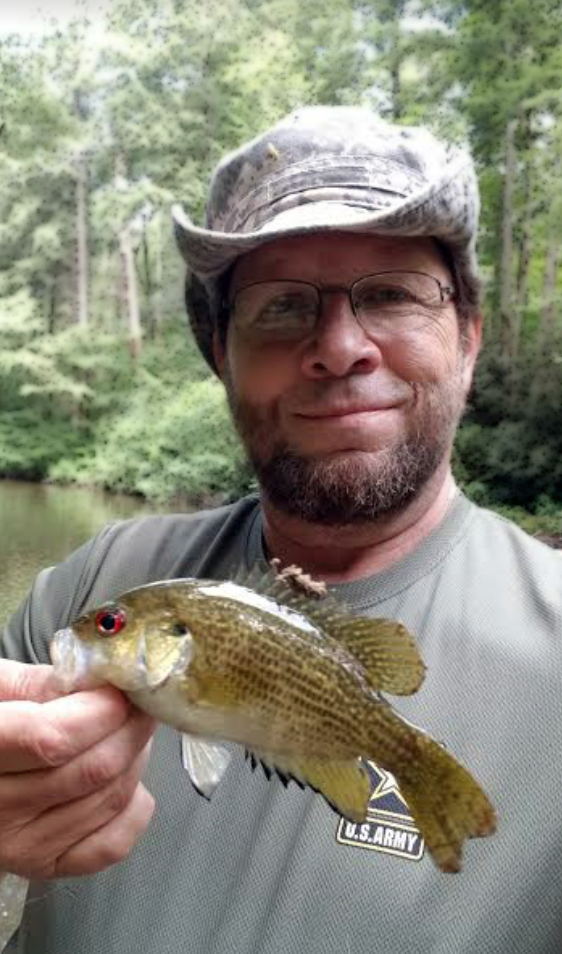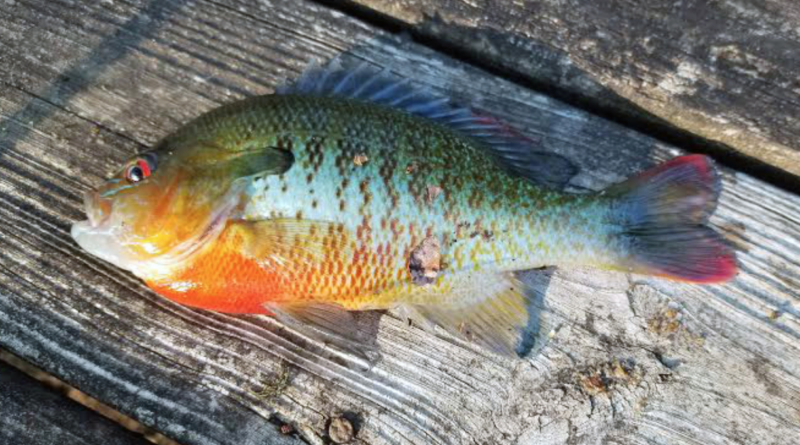MC out in Tennessee: start small to have a ball with bream
“Where do you go fishing around here?”
I love asking that question. I get the directions to more secret honey-holes that way than any other. People will even give you tackle and technique hints. My fishing notebook is full of details about what bait caught what fish, what time of year and where. If the person I’m talking to tells me they don’t fish around here, I feel obliged to ask, “Why not?”
“If you’re on a college student’s schedule in East Tennessee, why haven’t you tried fishing?” is another question I like to ask. Some have family obligations or a job gobbling their spare time. A few folks can’t imagine fishing because “those things are scary, stinky and slimy.” Some object to the idea of hurting an animal for entertainment’s sake. The two most common answers I get are, “I’ve never fished,” and, “I tried fishing when I was a kid.”

Bream, just like this male sunfish are dressed in their colorful best during this time of year.
Those who take statistics and research seriously would consider my half-remembered data guesstimates laughably insufficient for any kind of conclusion.
They’d point out that the only data I documented were maps, tips and hints. They’d be right. Being new in town, that’s what I was hoping for. Some of the tips have paid off in filets.
It seems that the majority of people I’ve asked haven’t wet a hook in more than a decade—or ever. It seems to indicate that few Maryville College students are as into fishing as I am. Fishing is one of my favorite excuses for going outside in Tennessee.
The best way to get introduced to fishing is to have an experienced friend take you. It’s probably more fun with a friend, but you can do it solo too. Here’s a quick checklist to help your first fishing trip be a success:
WHO: You and at least one friend. It’s always a good idea to bring a buddy or a few for many reasons. Safety is the most important reason. The water’s edge is often slippery, and it sometimes hides things like broken bottles and poisonous snakes.

Michael Westerfield shows off his catch, the first red eye he has captured on Adam’s creek.
WHAT: You’ll need a rod, reel and tackle at the least. Those are often sold together in beginner sets. Sets more appropriate for older beginners are available in most sporting goods department stores. These kits include everything you’ll need except the bait.
You’ll need to know how to tie a barrel knot. Some of the kits have instructions for common knots included, but the barrel knot is the only one you’ll need as a beginner. You’ll also need a pair of pliers for putting on weights and flattening hook barbs. Barbless hooks are much less likely to hurt the fish.
Bait fishing is the easiest and most productive way to catch bream, and bream are considered by many as the easiest fish to catch. Get something the fish want to eat and put it on a hook. Place the baited hook in front of the fish’s face. They like to eat crickets and worms. If that’s stopping you though, there are paste baits made out of crickets and worms. Pinch off a bit like molding clay and squish it to hide the hook.
WHEN: Now! This is a fantastic time to try your luck at fishing. It’s early in the semester, so big papers and projects are not due yet. Soon, local fish will get seriously busy fattening up for winter. They’ll bite anything that might be food.
WHERE: For bream, “everywhere” is barely an exaggeration. Google where to fish near Maryville, Tennessee, best bream fishing lakes or anything of the sort. Several lists of nearby waters will give you too many to choose from. Throw a dart if you wish. Put the address in your GPS, and go fishing! When you get there, ask questions. You might find out where to put your bait. Bream like to hide next to things. Place your bait next to something, and it might be too tempting to resist.
WHY: Listing the benefits of fishing and being outdoors in general could fill a page. I consider closeness to nature near the top. A morning watching corks is good stress medicine. I strongly encourage you to give fishing a try. It can be the adventure of a lifetime or lead to a lifetime of adventures.

